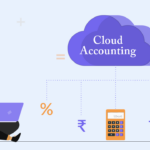CRM or Customer Relationship Management is an essential tool for businesses looking to streamline their operations and improve customer interactions. In the world of commercial real estate, where relationships are everything, having the right CRM can make all the difference. A good CRM can help agents and brokers manage their contacts, track leads, and close deals more efficiently.
Understanding CRM in Commercial Real Estate is crucial for agents and brokers to ensure they are making the most of the technology available to them. The right CRM can provide insights into client behavior, help manage communication, and automate tedious tasks. With so many options available, it can be challenging to determine which CRM is the best fit for your business needs.
In this article, we will explore the Key Features of the Best CRM for Commercial Real Estate and provide a list of Top CRM Solutions for Commercial Real Estate. We will also discuss Choosing the Right CRM: Pricing and Ease of Use, to help you make an informed decision about which CRM is right for your business.
Key Takeaways
- A good CRM is essential for commercial real estate agents and brokers to manage their contacts, track leads, and close deals more efficiently.
- The right CRM can provide insights into client behavior, help manage communication, and automate tedious tasks.
- When choosing a CRM, it’s important to consider key features, pricing, and ease of use to find the best fit for your business needs.
Understanding CRM in Commercial Real Estate
In commercial real estate, Customer Relationship Management (CRM) systems are essential tools for keeping track of clients, properties, and deals. A good CRM system can help agents and brokers manage their contacts, automate tasks, and streamline their workflow.
A CRM for commercial system is a software platform that allows agents and brokers to manage their relationships with clients and prospects. It helps them organize and track their interactions with clients, such as phone calls, emails, and property viewings. A CRM system can also help agents and brokers manage their properties, including property listings, marketing materials, and deals.
There are many different CRM systems available for commercial real estate, each with its own set of features and benefits. Some CRM systems are designed specifically for commercial real estate, while others are more general-purpose systems that can be adapted to the needs of commercial real estate agents and brokers.
When choosing a CRM system for commercial real estate, it is important to consider the specific needs of your business. Some important factors to consider include the size of your business, the number of agents and brokers you have, and the types of properties you deal with.
A good CRM for commercial for real estate should be easy to use, customizable, and scalable. It should also integrate with other tools and systems you use, such as email, calendar, and marketing automation tools. Additionally, it should provide robust reporting and analytics capabilities to help you track your performance and make data-driven decisions.
Overall, a CRM system is an essential tool for any commercial real estate agent or broker. It can help you manage your contacts, properties, and deals more efficiently and effectively, allowing you to focus on what you do best: closing deals and growing your business.
Key Features of the Best CRM for Commercial Real Estate
![Best CRM for Commercial Real Estate Brokers in [year] 2 crm for commercial](https://leoscale.co/wp-content/uploads/2023/11/image-41-1024x576.png)
As a commercial real estate professional, we understand the importance of having a reliable and effective CRM system to manage leads, sales, and marketing efforts. A CRM system can help us streamline our workflow, increase productivity, and ultimately close more deals. In this section, we will discuss the key features of the best CRM for commercial real estate.
Lead Management and Nurturing
One of the most important features of a CRM for commercial real estate is lead management and nurturing. A good CRM system should allow us to easily manage our leads and track their progress through the sales pipeline. This includes features such as lead scoring, lead nurturing, and lead generation. With lead scoring, we can prioritize our leads based on their level of interest and engagement. Lead nurturing allows us to build relationships with our leads and keep them engaged throughout the sales process. Lead generation helps us find new leads and expand our network.
Also read: The Best Accounting Software for Startups
Sales and Marketing Automation
Another key feature of the best CRM for commercial real estate is sales and marketing automation. A good CRM system should allow us to automate repetitive tasks such as sending emails, scheduling follow-ups, and updating contact information. This can save us time and increase our efficiency. Marketing automation can help us create targeted campaigns and track their success. With the right CRM system, we can easily create custom email templates, landing pages, and other marketing materials.
Integration and Collaboration
Finally, a good CRM for commercial real estate should allow for easy integration and collaboration with other tools and team members. Third-party integrations can help us streamline our workflow and automate tasks across different platforms. For example, we can integrate our CRM system with our email marketing platform, social media accounts, and other tools. Collaboration features such as team calendars, task assignments, and shared contact lists can help us work more efficiently and effectively as a team.
In conclusion, the best CRM for commercial real estate should have features such as lead management and nurturing, sales and marketing automation, and integration and collaboration. By using a reliable and effective CRM system, we can increase our productivity, streamline our workflow, and ultimately close more deals.
Top CRM Solutions for Commercial Real Estate
![Best CRM for Commercial Real Estate Brokers in [year] 3 image 42](https://leoscale.co/wp-content/uploads/2023/11/image-42-1024x576.png)
When it comes to managing clients, properties, and deals in the commercial real estate industry, having a reliable CRM system is critical. In this section, we will discuss the top CRM solutions for commercial real estate that can help you streamline your sales process, improve customer engagement, and close more deals.
HubSpot CRM
HubSpot CRM is a popular choice for many commercial real estate agents and brokers. It’s a free CRM that offers a range of features, including contact management, deal tracking, and lead generation. With HubSpot CRM, you can easily manage your pipeline, track your sales activities, and automate your follow-up emails. The platform also integrates with other HubSpot tools, such as marketing automation and customer service, to provide a complete solution for your business.
Zoho CRM
Zoho CRM is another great CRM option for commercial real estate professionals. It offers robust customization options, allowing you to tailor the platform to your specific needs. With Zoho CRM, you can manage contacts, leads, and deals, as well as automate your sales processes. The platform also offers advanced analytics and reporting features, which can help you gain valuable insights into your sales performance.
Salesforce
Salesforce is a powerful CRM system that is widely used in the commercial real estate industry. It offers a range of features, including contact management, lead tracking, and deal management. With Salesforce, you can easily manage your pipeline, track your sales activities, and collaborate with your team. The platform also offers advanced analytics and reporting features, which can help you identify trends and optimize your sales process.
Freshsales
Freshsales is a user-friendly CRM system that is designed to help commercial real estate agents and brokers manage their sales process. It offers a range of features, including contact management, lead tracking, and deal management. With Freshsales, you can easily manage your pipeline, track your sales activities, and automate your follow-up emails. The platform also offers advanced analytics and reporting features, which can help you gain valuable insights into your sales performance.
Pipedrive
Pipedrive is a popular CRM system that is designed to help commercial real estate professionals manage their sales process. It offers a range of features, including contact management, lead tracking, and deal management. With Pipedrive, you can easily manage your pipeline, track your sales activities, and automate your follow-up emails. The platform also offers advanced analytics and reporting features, which can help you identify trends and optimize your sales process.
In conclusion, choosing the right CRM system is essential for commercial real estate professionals who want to improve their sales process and close more deals. Whether you choose HubSpot CRM, Zoho CRM, Salesforce, Freshsales, or Pipedrive, each of these platforms offers a range of features that can help you manage your contacts, track your sales activities, and automate your follow-up emails.
Choosing the Right CRM: Pricing and Ease of Use
When it comes to choosing the right CRM for your commercial real estate business, pricing and ease of use are two of the most important factors to consider. You want a CRM that fits within your budget and is easy for your team to use, without sacrificing functionality or features.
Pricing
Pricing is always a key consideration when choosing a CRM. You want to find a solution that offers the features and functionality you need at a price that fits within your budget. Some CRMs charge per user, while others offer flat-rate pricing. It’s important to consider how many users you have and how much you’re willing to spend per month.
One option to consider is Salesforce, which offers a variety of pricing plans to fit different budgets and needs. They also offer a free trial so you can test out the platform before committing.
Another option to consider is HubSpot, which offers a free CRM with basic features, as well as paid plans with more advanced functionality. Their pricing is based on the number of contacts you have, rather than the number of users, which can be a more affordable option for larger teams.
Ease of Use
Ease of use is also an important consideration when choosing a CRM. You want a platform that is intuitive and easy for your team to learn and use, without requiring extensive training or technical expertise.
One option to consider is Zoho CRM, which is designed specifically for real estate professionals. The platform is easy to use and offers a variety of features tailored to the needs of real estate agents and brokers.
Another option to consider is Pipedrive, which offers a simple and intuitive interface that is easy for new users to learn. They also offer a variety of integrations with other tools and platforms commonly used in the real estate industry.
Overall, when choosing a CRM for your commercial real estate business, it’s important to consider both pricing and ease of use. By finding a platform that fits within your budget and is easy for your team to use, you can ensure that you’re getting the most value out of your CRM investment.


![Best CRM for Commercial Real Estate Brokers in [year] 1 CRM for commercial real estate](https://leoscale.co/wp-content/uploads/2023/11/CRM-real-estate.png)

![Best 7 CRM for Small Business [year] 7 crm for small business](https://leoscale.co/wp-content/uploads/2023/11/CRM-for-small-business-150x150.jpg)
![15+ Best AI Background Remover in [year] AI Background Remover](https://leoscale.co/wp-content/uploads/2024/01/AI-Background-Remover-150x150.jpg)
![11+ Best AI Tools for Interview Preparations in [year] AI Interview Preparation](https://leoscale.co/wp-content/uploads/2024/01/AI-Interview-Preparation-150x150.jpg)
![Top 10 AI Tools for Learn Languages You Should Try [year] AI Tools for Learn Languages](https://leoscale.co/wp-content/uploads/2023/12/AI-Tools-for-Learn-Languages-150x150.jpg)

![13 Best AI Search Engines to Try Now in [year] AI Search Engine](https://leoscale.co/wp-content/uploads/2023/12/AI-Search-Engine-150x150.jpg)